Why Is the Possibility of Revising Iran’s Nuclear Doctrine Raised
Strategic Council Online – Note: Iran has done more than its share for the nuclear non-proliferation regime.
Strategic Council Online – Note: Iran has done more than its share for the nuclear non-proliferation regime.
Strategic Council Online: The President of the Strategic Council on Foreign Relations stated: “The US State Department spokesperson, after my interview with Al Jazeera, reiterated their past remarks, stating that they won’t allow Iran to build nuclear weapons, but ultimately said diplomacy is the best approach. Yes, we too prefer diplomacy since based on the Fatwa of our Supreme Leader are not for nuclear weapons; rather, we are advocates of diplomacy to make the Middle East a nuclear-free region. But, in case the Israeli regime threatens us with nuclear weapons, we surely cannot sit idle and wait for permission from others.”
Strategic Council Online – Opinion: The strategic Strait of Bab al-Mandab and the Red Sea have recently faced serious problems and crises due to the Gaza war. This is because of the protectionist approach of the Yemeni army forces toward Palestine, which, since the beginning of the Israeli regime’s attacks on the Gaza Strip, has included attacks on ships bound for or from the origin of the regime in the Red Sea.
They said they will continue their attacks until the Israeli regime’s military aggression in the Gaza Strip ends. The United States, as the most important supporter of the Israeli regime, was the first country to respond to this policy of Yemeni army forces and tried to form a global coalition to counter these attacks under the cover of supporting freedom of navigation, which, of course, failed because of conflicts of interests of Western countries and ended in the actions of the US and British attacks on positions in Yemen. Of course, although European countries were not seriously involved in the American coalition, they have numerous and complex interests in this inflammatory, and as a result, have adopted a particular and independent approach.
Dr. Mohammad Mehdi Mazaheri – University Professor
Strategic Council Online – Interview: An expert on regional issues said Qatari authorities will definitely resist Western pressure to expel Hamas leaders from their territory, and probably the United States will not move towards a zero-hundred equation in this regard because if the Hamas leaders remain in Qatar, which is an ally of the United States, is better than moving to a country outside the power of the United States to exert pressure.
Strategic Council Online – Opinion: Student protests in America take on new dimensions every day.
Because the university enjoys higher public trust and social capital than other civil and social institutions and is, therefore, more effective, the current protests put the U.S. government in a “difficult situation” that is clear in the statements of current and former U.S. officials.
Hamid Khoshayand – International Affairs Expert
Strategic Council Online: The 3rd Iranian-Arab Dialogue Conference, titled “For Cooperation and Interaction,” will be inaugurated on April 23rd in Tehran, hosted by the Strategic Council on Foreign Relations.
Strategic Council Online – Interview: An expert on Caucasus issues said that Swedish Foreign Minister Tobias Billström recently announced that EU states plan to include the ban on the supply of liquefied natural gas (LNG) in the sanctions against Russia.
Strategic Council Online—Interview: An expert on strategic issues said: The US Navy has put a project on the agenda to convert surplus oil platforms into mobile missile defense bases in the Pacific Ocean and face China’s threats. These platforms are supposed to be deployed in response to China’s growing missile threats in the Pacific region. Platforms converted into missile defense bases are expected to play an important role in increasing US air defense capabilities and assisting in the country’s strike missions.

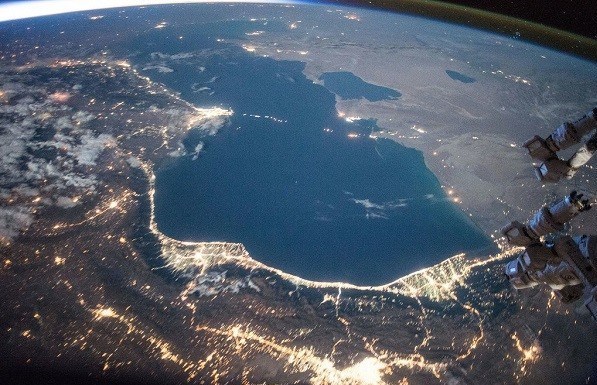
Strategic Council Online-Opinion: The unprecedented decrease in the water level of the Caspian Sea has recently become important news in the media, political, and environmental circles. The continuous and rapid reduction in the level of the Caspian Sea began in 1996 and continues to this day.
Barsam Mohammadi-Expert of regional affairs
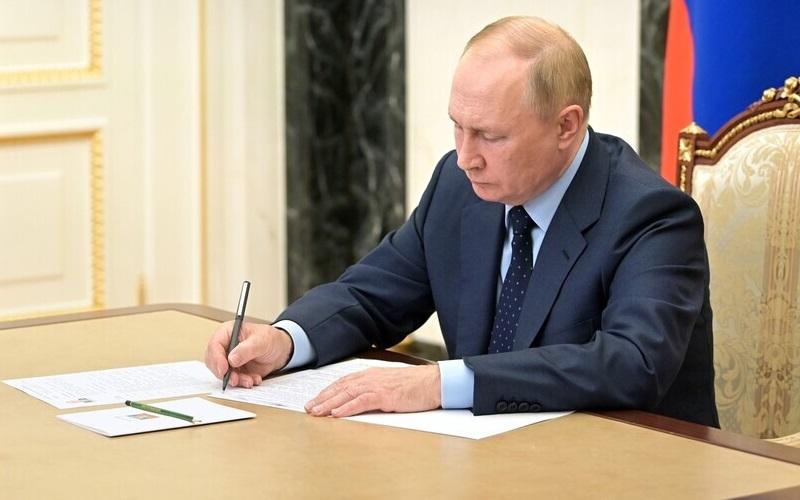
Strategic Council Online – Interview: An expert on international affairs stated that by withdrawing from the Treaty on Conventional Armed Forces in Europe and other military pacts, Russia is creating a kind of ambiguity in the scope of its military power, adding: Ambiguity in military power also occurred in the Cold War, and we are now witnessing a new Cold War between Russia and the West.
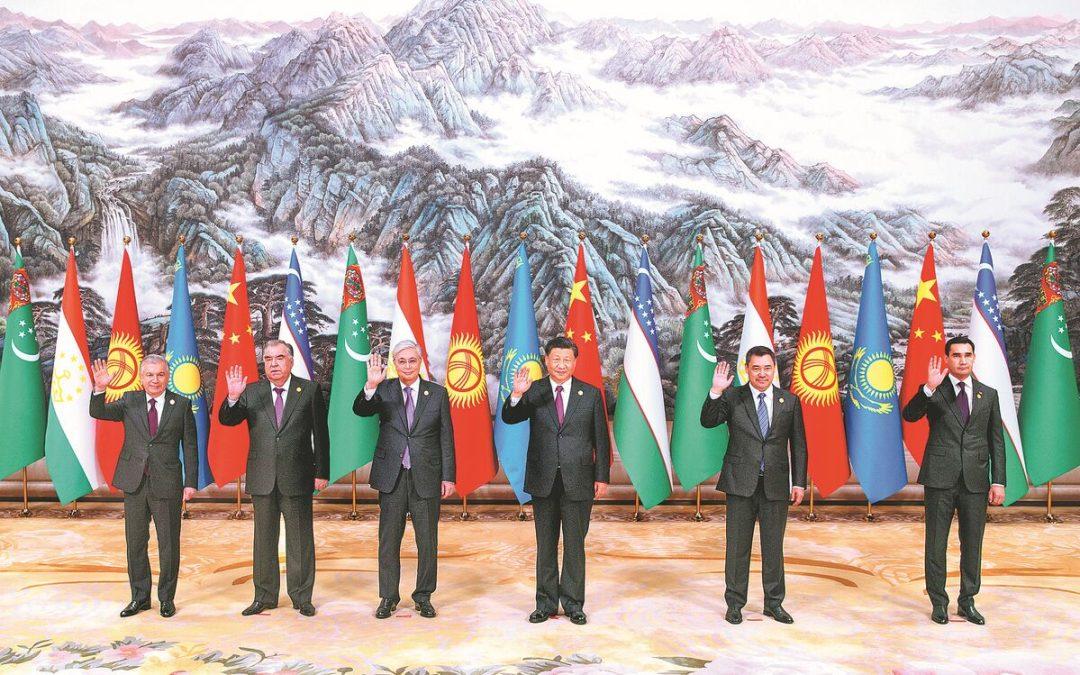
Strategic Council Online – Interview: A faculty member of Allameh Tabataba’i University stated that in relations with Central Asia, China has considered a pragmatic policy centered on the economy and has put this economy in interaction with politics, and for this reason, concerning political and security issues has not been indifferent, adding: the agreements reached in the recent meeting of the heads of states of China and Central Asian countries, entails stabilization and intensification of Beijing’s presence and influence in that region, and as a result, an increase of Beijing’s playing capability in those countries.
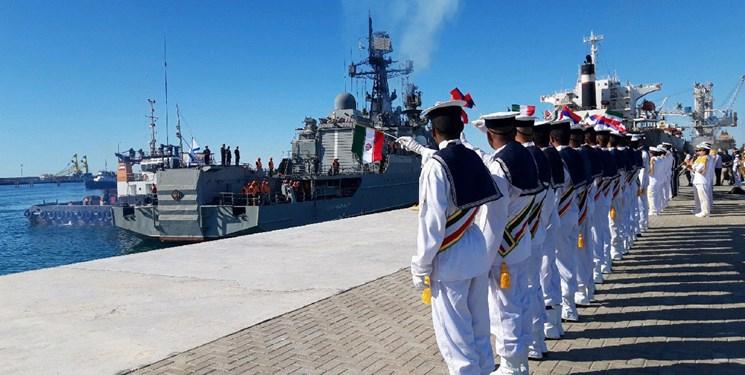
Strategic Council Online – Interview: The commander of the strategic naval forces of the army said that the 2023 marine security belt joint exercise would help to develop cooperation between the naval forces of Iran, China, and Russia, as well as increase the readiness to provide maritime security and safety jointly in line with creating peace and regional stability, announced the efforts being made to have the countries of the region participate in a marine belt exercise as well as the cooperation of the commanders of the Indian Ocean Naval Forces Symposium (IONS) for the following year.
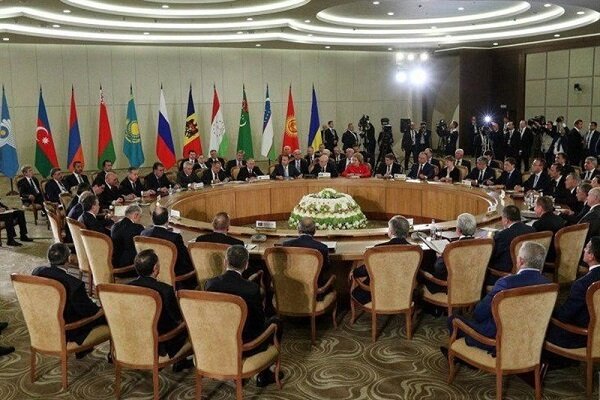
Strategic Council Online- Opinion: In addition to bilateral relations, regionalism as well as linking the economic interests of Northern neighbors to Iran’s potentials can bring more achievements.
Mehdi Khoorsand, Expert on China and Eurasia affairs
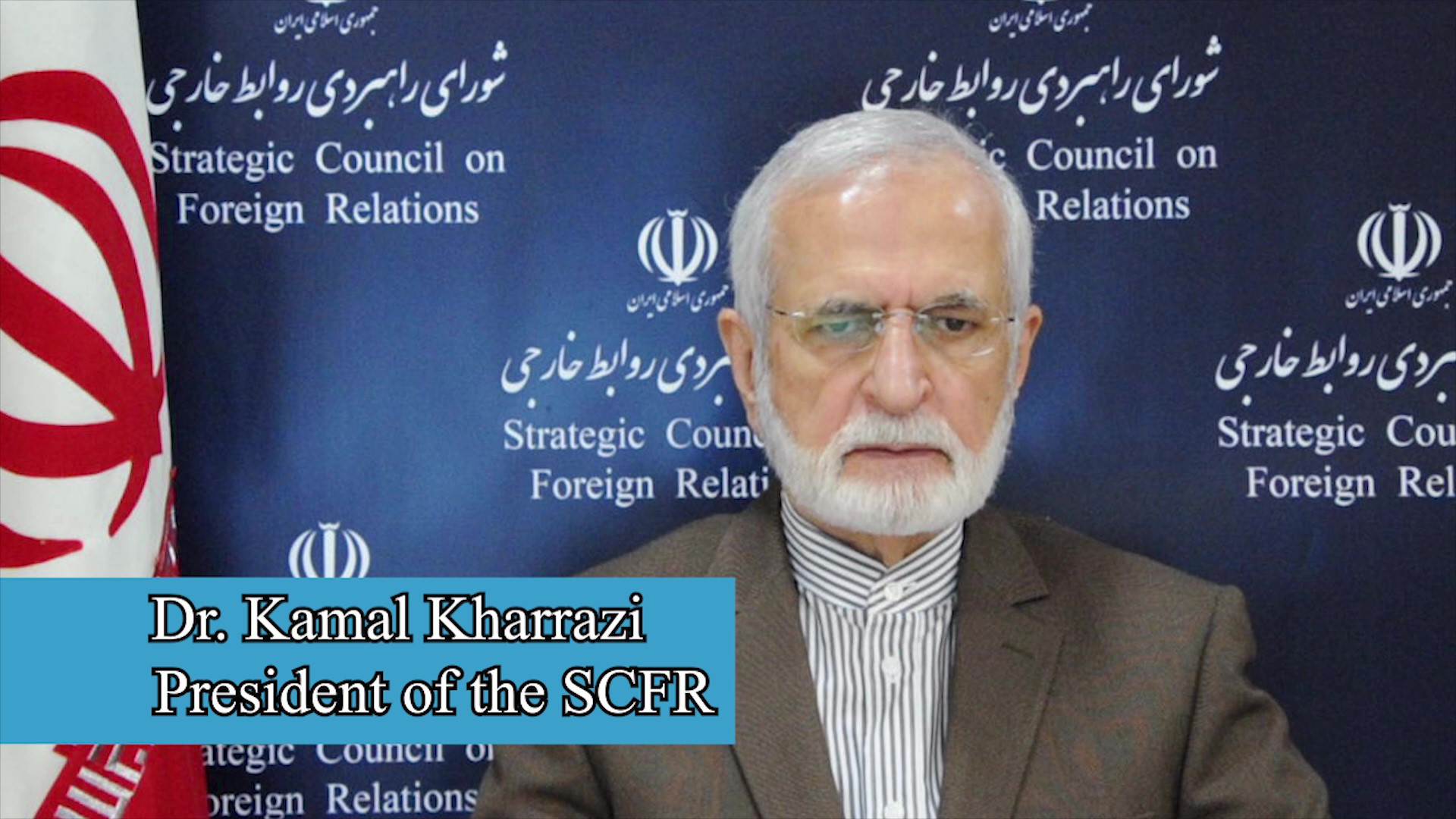
Strategic Council Online: President of the Strategic Council on Foreign Relations presented Iran’s views on resolving the crises in Syria, Yemen and Afghanistan and in fighting terrorism.
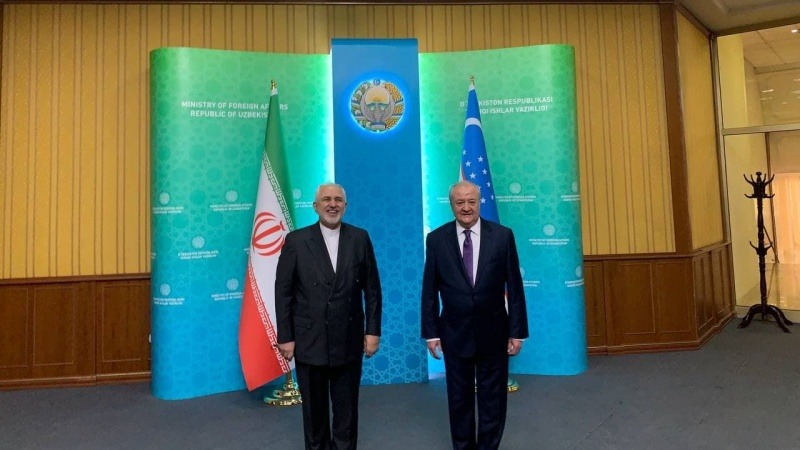
Strategic Council Online—Interview: An expert of Central Asian affairs says the recent visit by Iranian Foreign Minister Mohammad Javad Zarif to the four main Central Asian states of Kazakhstan, Kyrgyzstan, Turkmenistan and Uzbekistan bears geopolitical and strategic significance given the recent developments such as the nuclear talks and the 25-year cooperation agreement between Iran and China.

Strategic Council Online – The Islamic Republic of Iran can use the principle of balancing and diversification, to increase its presence in the Central Asian region.
Vali Kouzegar Kaleji – senior researcher at the Center for Strategic Studies of the President’s Office
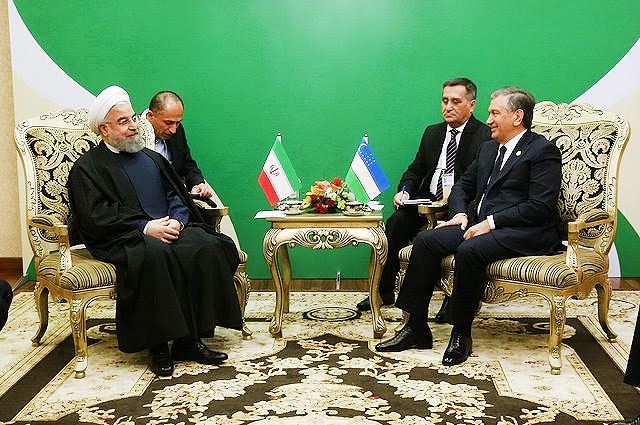
Strategic Council Online—Opinion: During the tenure of Shavkat Miromonovich Mirziyoyev, the new President of Uzbekistan, changes have partly taken place in relations between Uzbekistan and other countries including Iran.
Hassan Beheshtipoor—Expert of Asia affairs

Strategic Council Online: Because Central Asian countries geographically do not have access to the high seas, the best way for them to keep in touch with world trade is through southern Iran, and they are interested in this route because of the security Iran enjoys. The Islamic Republic of Iran should also welcome these investments and projects, as it will be a win-win situation for both parties.
Abdolreza Farajirad – University Professor and Expert on Geopolitics
Strategic Council Online – Note: Iran has done more than its share for the nuclear non-proliferation regime.
Strategic Council Online: The President of the Strategic Council on Foreign Relations stated: “The US State Department spokesperson, after my interview with Al Jazeera, reiterated their past remarks, stating that they won’t allow Iran to build nuclear weapons, but ultimately said diplomacy is the best approach. Yes, we too prefer diplomacy since based on the Fatwa of our Supreme Leader are not for nuclear weapons; rather, we are advocates of diplomacy to make the Middle East a nuclear-free region. But, in case the Israeli regime threatens us with nuclear weapons, we surely cannot sit idle and wait for permission from others.”
Strategic Council Online – Opinion: The strategic Strait of Bab al-Mandab and the Red Sea have recently faced serious problems and crises due to the Gaza war. This is because of the protectionist approach of the Yemeni army forces toward Palestine, which, since the beginning of the Israeli regime’s attacks on the Gaza Strip, has included attacks on ships bound for or from the origin of the regime in the Red Sea.
They said they will continue their attacks until the Israeli regime’s military aggression in the Gaza Strip ends. The United States, as the most important supporter of the Israeli regime, was the first country to respond to this policy of Yemeni army forces and tried to form a global coalition to counter these attacks under the cover of supporting freedom of navigation, which, of course, failed because of conflicts of interests of Western countries and ended in the actions of the US and British attacks on positions in Yemen. Of course, although European countries were not seriously involved in the American coalition, they have numerous and complex interests in this inflammatory, and as a result, have adopted a particular and independent approach.
Dr. Mohammad Mehdi Mazaheri – University Professor
Strategic Council Online – Interview: An expert on regional issues said Qatari authorities will definitely resist Western pressure to expel Hamas leaders from their territory, and probably the United States will not move towards a zero-hundred equation in this regard because if the Hamas leaders remain in Qatar, which is an ally of the United States, is better than moving to a country outside the power of the United States to exert pressure.
Strategic Council Online – Opinion: Student protests in America take on new dimensions every day.
Because the university enjoys higher public trust and social capital than other civil and social institutions and is, therefore, more effective, the current protests put the U.S. government in a “difficult situation” that is clear in the statements of current and former U.S. officials.
Hamid Khoshayand – International Affairs Expert
Strategic Council Online: The 3rd Iranian-Arab Dialogue Conference, titled “For Cooperation and Interaction,” will be inaugurated on April 23rd in Tehran, hosted by the Strategic Council on Foreign Relations.
Strategic Council Online – Interview: An expert on Caucasus issues said that Swedish Foreign Minister Tobias Billström recently announced that EU states plan to include the ban on the supply of liquefied natural gas (LNG) in the sanctions against Russia.
Strategic Council Online—Interview: An expert on strategic issues said: The US Navy has put a project on the agenda to convert surplus oil platforms into mobile missile defense bases in the Pacific Ocean and face China’s threats. These platforms are supposed to be deployed in response to China’s growing missile threats in the Pacific region. Platforms converted into missile defense bases are expected to play an important role in increasing US air defense capabilities and assisting in the country’s strike missions.


Strategic Council Online-Opinion: The unprecedented decrease in the water level of the Caspian Sea has recently become important news in the media, political, and environmental circles. The continuous and rapid reduction in the level of the Caspian Sea began in 1996 and continues to this day.
Barsam Mohammadi-Expert of regional affairs

Strategic Council Online – Interview: An expert on international affairs stated that by withdrawing from the Treaty on Conventional Armed Forces in Europe and other military pacts, Russia is creating a kind of ambiguity in the scope of its military power, adding: Ambiguity in military power also occurred in the Cold War, and we are now witnessing a new Cold War between Russia and the West.

Strategic Council Online – Interview: A faculty member of Allameh Tabataba’i University stated that in relations with Central Asia, China has considered a pragmatic policy centered on the economy and has put this economy in interaction with politics, and for this reason, concerning political and security issues has not been indifferent, adding: the agreements reached in the recent meeting of the heads of states of China and Central Asian countries, entails stabilization and intensification of Beijing’s presence and influence in that region, and as a result, an increase of Beijing’s playing capability in those countries.

Strategic Council Online – Interview: The commander of the strategic naval forces of the army said that the 2023 marine security belt joint exercise would help to develop cooperation between the naval forces of Iran, China, and Russia, as well as increase the readiness to provide maritime security and safety jointly in line with creating peace and regional stability, announced the efforts being made to have the countries of the region participate in a marine belt exercise as well as the cooperation of the commanders of the Indian Ocean Naval Forces Symposium (IONS) for the following year.

Strategic Council Online- Opinion: In addition to bilateral relations, regionalism as well as linking the economic interests of Northern neighbors to Iran’s potentials can bring more achievements.
Mehdi Khoorsand, Expert on China and Eurasia affairs

Strategic Council Online: President of the Strategic Council on Foreign Relations presented Iran’s views on resolving the crises in Syria, Yemen and Afghanistan and in fighting terrorism.

Strategic Council Online—Interview: An expert of Central Asian affairs says the recent visit by Iranian Foreign Minister Mohammad Javad Zarif to the four main Central Asian states of Kazakhstan, Kyrgyzstan, Turkmenistan and Uzbekistan bears geopolitical and strategic significance given the recent developments such as the nuclear talks and the 25-year cooperation agreement between Iran and China.

Strategic Council Online – The Islamic Republic of Iran can use the principle of balancing and diversification, to increase its presence in the Central Asian region.
Vali Kouzegar Kaleji – senior researcher at the Center for Strategic Studies of the President’s Office

Strategic Council Online—Opinion: During the tenure of Shavkat Miromonovich Mirziyoyev, the new President of Uzbekistan, changes have partly taken place in relations between Uzbekistan and other countries including Iran.
Hassan Beheshtipoor—Expert of Asia affairs

Strategic Council Online: Because Central Asian countries geographically do not have access to the high seas, the best way for them to keep in touch with world trade is through southern Iran, and they are interested in this route because of the security Iran enjoys. The Islamic Republic of Iran should also welcome these investments and projects, as it will be a win-win situation for both parties.
Abdolreza Farajirad – University Professor and Expert on Geopolitics

Strategic Council Online-Opinion: The unprecedented decrease in the water level of the Caspian Sea has recently become important news in the media, political, and environmental circles. The continuous and rapid reduction in the level of the Caspian Sea began in 1996 and continues to this day.
Barsam Mohammadi-Expert of regional affairs

Strategic Council Online – Interview: An expert on international affairs stated that by withdrawing from the Treaty on Conventional Armed Forces in Europe and other military pacts, Russia is creating a kind of ambiguity in the scope of its military power, adding: Ambiguity in military power also occurred in the Cold War, and we are now witnessing a new Cold War between Russia and the West.

Strategic Council Online – Interview: A faculty member of Allameh Tabataba’i University stated that in relations with Central Asia, China has considered a pragmatic policy centered on the economy and has put this economy in interaction with politics, and for this reason, concerning political and security issues has not been indifferent, adding: the agreements reached in the recent meeting of the heads of states of China and Central Asian countries, entails stabilization and intensification of Beijing’s presence and influence in that region, and as a result, an increase of Beijing’s playing capability in those countries.

Strategic Council Online – Interview: The commander of the strategic naval forces of the army said that the 2023 marine security belt joint exercise would help to develop cooperation between the naval forces of Iran, China, and Russia, as well as increase the readiness to provide maritime security and safety jointly in line with creating peace and regional stability, announced the efforts being made to have the countries of the region participate in a marine belt exercise as well as the cooperation of the commanders of the Indian Ocean Naval Forces Symposium (IONS) for the following year.

Strategic Council Online- Opinion: In addition to bilateral relations, regionalism as well as linking the economic interests of Northern neighbors to Iran’s potentials can bring more achievements.
Mehdi Khoorsand, Expert on China and Eurasia affairs

Strategic Council Online: President of the Strategic Council on Foreign Relations presented Iran’s views on resolving the crises in Syria, Yemen and Afghanistan and in fighting terrorism.

Strategic Council Online—Interview: An expert of Central Asian affairs says the recent visit by Iranian Foreign Minister Mohammad Javad Zarif to the four main Central Asian states of Kazakhstan, Kyrgyzstan, Turkmenistan and Uzbekistan bears geopolitical and strategic significance given the recent developments such as the nuclear talks and the 25-year cooperation agreement between Iran and China.

Strategic Council Online – The Islamic Republic of Iran can use the principle of balancing and diversification, to increase its presence in the Central Asian region.
Vali Kouzegar Kaleji – senior researcher at the Center for Strategic Studies of the President’s Office

Strategic Council Online—Opinion: During the tenure of Shavkat Miromonovich Mirziyoyev, the new President of Uzbekistan, changes have partly taken place in relations between Uzbekistan and other countries including Iran.
Hassan Beheshtipoor—Expert of Asia affairs

Strategic Council Online: Because Central Asian countries geographically do not have access to the high seas, the best way for them to keep in touch with world trade is through southern Iran, and they are interested in this route because of the security Iran enjoys. The Islamic Republic of Iran should also welcome these investments and projects, as it will be a win-win situation for both parties.
Abdolreza Farajirad – University Professor and Expert on Geopolitics
Strategic Council Online – Note: Iran has done more than its share for the nuclear non-proliferation regime.
Strategic Council Online: The President of the Strategic Council on Foreign Relations stated: “The US State Department spokesperson, after my interview with Al Jazeera, reiterated their past remarks, stating that they won’t allow Iran to build nuclear weapons, but ultimately said diplomacy is the best approach. Yes, we too prefer diplomacy since based on the Fatwa of our Supreme Leader are not for nuclear weapons; rather, we are advocates of diplomacy to make the Middle East a nuclear-free region. But, in case the Israeli regime threatens us with nuclear weapons, we surely cannot sit idle and wait for permission from others.”
Strategic Council Online – Opinion: The strategic Strait of Bab al-Mandab and the Red Sea have recently faced serious problems and crises due to the Gaza war. This is because of the protectionist approach of the Yemeni army forces toward Palestine, which, since the beginning of the Israeli regime’s attacks on the Gaza Strip, has included attacks on ships bound for or from the origin of the regime in the Red Sea.
They said they will continue their attacks until the Israeli regime’s military aggression in the Gaza Strip ends. The United States, as the most important supporter of the Israeli regime, was the first country to respond to this policy of Yemeni army forces and tried to form a global coalition to counter these attacks under the cover of supporting freedom of navigation, which, of course, failed because of conflicts of interests of Western countries and ended in the actions of the US and British attacks on positions in Yemen. Of course, although European countries were not seriously involved in the American coalition, they have numerous and complex interests in this inflammatory, and as a result, have adopted a particular and independent approach.
Dr. Mohammad Mehdi Mazaheri – University Professor
Strategic Council Online – Interview: An expert on regional issues said Qatari authorities will definitely resist Western pressure to expel Hamas leaders from their territory, and probably the United States will not move towards a zero-hundred equation in this regard because if the Hamas leaders remain in Qatar, which is an ally of the United States, is better than moving to a country outside the power of the United States to exert pressure.
Strategic Council Online – Opinion: Student protests in America take on new dimensions every day.
Because the university enjoys higher public trust and social capital than other civil and social institutions and is, therefore, more effective, the current protests put the U.S. government in a “difficult situation” that is clear in the statements of current and former U.S. officials.
Hamid Khoshayand – International Affairs Expert
Strategic Council Online: The 3rd Iranian-Arab Dialogue Conference, titled “For Cooperation and Interaction,” will be inaugurated on April 23rd in Tehran, hosted by the Strategic Council on Foreign Relations.
Strategic Council Online – Interview: An expert on Caucasus issues said that Swedish Foreign Minister Tobias Billström recently announced that EU states plan to include the ban on the supply of liquefied natural gas (LNG) in the sanctions against Russia.
Strategic Council Online—Interview: An expert on strategic issues said: The US Navy has put a project on the agenda to convert surplus oil platforms into mobile missile defense bases in the Pacific Ocean and face China’s threats. These platforms are supposed to be deployed in response to China’s growing missile threats in the Pacific region. Platforms converted into missile defense bases are expected to play an important role in increasing US air defense capabilities and assisting in the country’s strike missions.


Strategic Council Online-Opinion: The unprecedented decrease in the water level of the Caspian Sea has recently become important news in the media, political, and environmental circles. The continuous and rapid reduction in the level of the Caspian Sea began in 1996 and continues to this day.
Barsam Mohammadi-Expert of regional affairs

Strategic Council Online – Interview: An expert on international affairs stated that by withdrawing from the Treaty on Conventional Armed Forces in Europe and other military pacts, Russia is creating a kind of ambiguity in the scope of its military power, adding: Ambiguity in military power also occurred in the Cold War, and we are now witnessing a new Cold War between Russia and the West.

Strategic Council Online – Interview: A faculty member of Allameh Tabataba’i University stated that in relations with Central Asia, China has considered a pragmatic policy centered on the economy and has put this economy in interaction with politics, and for this reason, concerning political and security issues has not been indifferent, adding: the agreements reached in the recent meeting of the heads of states of China and Central Asian countries, entails stabilization and intensification of Beijing’s presence and influence in that region, and as a result, an increase of Beijing’s playing capability in those countries.

Strategic Council Online – Interview: The commander of the strategic naval forces of the army said that the 2023 marine security belt joint exercise would help to develop cooperation between the naval forces of Iran, China, and Russia, as well as increase the readiness to provide maritime security and safety jointly in line with creating peace and regional stability, announced the efforts being made to have the countries of the region participate in a marine belt exercise as well as the cooperation of the commanders of the Indian Ocean Naval Forces Symposium (IONS) for the following year.

Strategic Council Online- Opinion: In addition to bilateral relations, regionalism as well as linking the economic interests of Northern neighbors to Iran’s potentials can bring more achievements.
Mehdi Khoorsand, Expert on China and Eurasia affairs

Strategic Council Online: President of the Strategic Council on Foreign Relations presented Iran’s views on resolving the crises in Syria, Yemen and Afghanistan and in fighting terrorism.

Strategic Council Online—Interview: An expert of Central Asian affairs says the recent visit by Iranian Foreign Minister Mohammad Javad Zarif to the four main Central Asian states of Kazakhstan, Kyrgyzstan, Turkmenistan and Uzbekistan bears geopolitical and strategic significance given the recent developments such as the nuclear talks and the 25-year cooperation agreement between Iran and China.

Strategic Council Online – The Islamic Republic of Iran can use the principle of balancing and diversification, to increase its presence in the Central Asian region.
Vali Kouzegar Kaleji – senior researcher at the Center for Strategic Studies of the President’s Office

Strategic Council Online—Opinion: During the tenure of Shavkat Miromonovich Mirziyoyev, the new President of Uzbekistan, changes have partly taken place in relations between Uzbekistan and other countries including Iran.
Hassan Beheshtipoor—Expert of Asia affairs

Strategic Council Online: Because Central Asian countries geographically do not have access to the high seas, the best way for them to keep in touch with world trade is through southern Iran, and they are interested in this route because of the security Iran enjoys. The Islamic Republic of Iran should also welcome these investments and projects, as it will be a win-win situation for both parties.
Abdolreza Farajirad – University Professor and Expert on Geopolitics
Strategic Council Online – Note: Iran has done more than its share for the nuclear non-proliferation regime.
Strategic Council Online: The President of the Strategic Council on Foreign Relations stated: “The US State Department spokesperson, after my interview with Al Jazeera, reiterated their past remarks, stating that they won’t allow Iran to build nuclear weapons, but ultimately said diplomacy is the best approach. Yes, we too prefer diplomacy since based on the Fatwa of our Supreme Leader are not for nuclear weapons; rather, we are advocates of diplomacy to make the Middle East a nuclear-free region. But, in case the Israeli regime threatens us with nuclear weapons, we surely cannot sit idle and wait for permission from others.”
Strategic Council Online – Opinion: The strategic Strait of Bab al-Mandab and the Red Sea have recently faced serious problems and crises due to the Gaza war. This is because of the protectionist approach of the Yemeni army forces toward Palestine, which, since the beginning of the Israeli regime’s attacks on the Gaza Strip, has included attacks on ships bound for or from the origin of the regime in the Red Sea.
They said they will continue their attacks until the Israeli regime’s military aggression in the Gaza Strip ends. The United States, as the most important supporter of the Israeli regime, was the first country to respond to this policy of Yemeni army forces and tried to form a global coalition to counter these attacks under the cover of supporting freedom of navigation, which, of course, failed because of conflicts of interests of Western countries and ended in the actions of the US and British attacks on positions in Yemen. Of course, although European countries were not seriously involved in the American coalition, they have numerous and complex interests in this inflammatory, and as a result, have adopted a particular and independent approach.
Dr. Mohammad Mehdi Mazaheri – University Professor
Strategic Council Online – Interview: An expert on regional issues said Qatari authorities will definitely resist Western pressure to expel Hamas leaders from their territory, and probably the United States will not move towards a zero-hundred equation in this regard because if the Hamas leaders remain in Qatar, which is an ally of the United States, is better than moving to a country outside the power of the United States to exert pressure.
Strategic Council Online – Opinion: Student protests in America take on new dimensions every day.
Because the university enjoys higher public trust and social capital than other civil and social institutions and is, therefore, more effective, the current protests put the U.S. government in a “difficult situation” that is clear in the statements of current and former U.S. officials.
Hamid Khoshayand – International Affairs Expert
Strategic Council Online: The 3rd Iranian-Arab Dialogue Conference, titled “For Cooperation and Interaction,” will be inaugurated on April 23rd in Tehran, hosted by the Strategic Council on Foreign Relations.
Strategic Council Online – Interview: An expert on Caucasus issues said that Swedish Foreign Minister Tobias Billström recently announced that EU states plan to include the ban on the supply of liquefied natural gas (LNG) in the sanctions against Russia.
Strategic Council Online—Interview: An expert on strategic issues said: The US Navy has put a project on the agenda to convert surplus oil platforms into mobile missile defense bases in the Pacific Ocean and face China’s threats. These platforms are supposed to be deployed in response to China’s growing missile threats in the Pacific region. Platforms converted into missile defense bases are expected to play an important role in increasing US air defense capabilities and assisting in the country’s strike missions.
